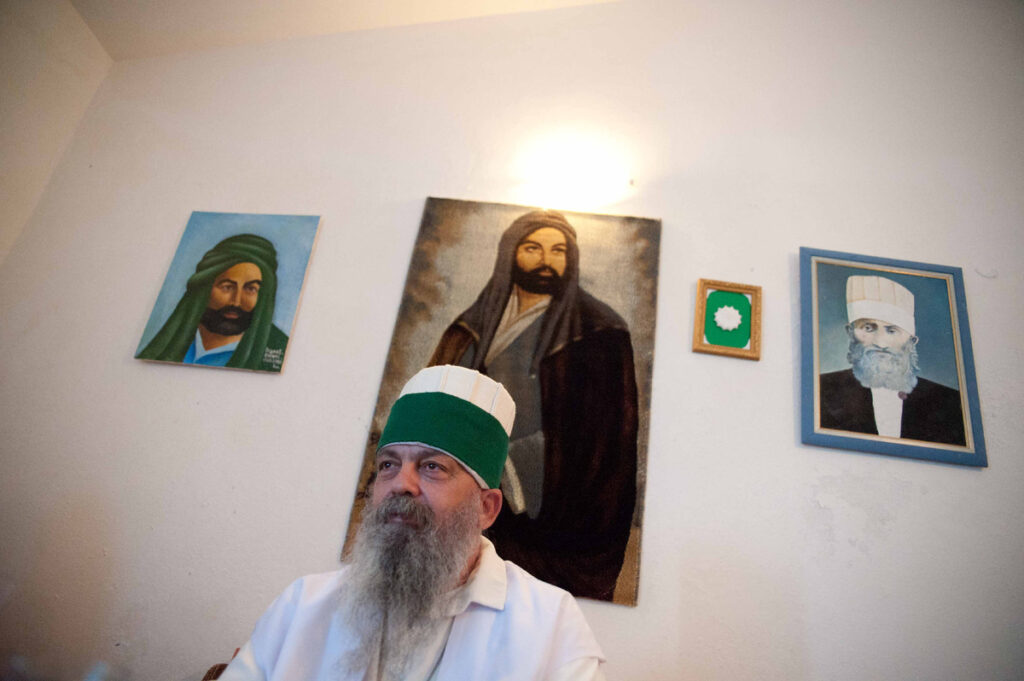People tend to represent major movements within Islam as separate denominations, the difference between which is obvious and fixed at the administrative level. But in fact, this is a relatively recent phenomenon associated with the emergence of large centralized states.

But in the Middle Ages everything was different, the difference between them was much more vague and indefinite. Especially in non-Arab countries of the Islamic world, whose inhabitants converted to the Muslim faith relatively late. At that time, Sunnism and Shiism were rather not independent teachings, but a matter of political affiliation. And besides them, there were numerous unorthodox interpretations of the Islamic religion, which sometimes achieved significant popularity.
A thousand years ago, the largest movement was the Batanites – supporters of the allegorical interpretation of the scriptures. Later, Alevites emerged from them, adapting many of the beliefs of Zoroastrians and Christians. And already under the Ottoman Empire, the Bektashi, who created an influential Dervish order, separated themselves (but not completely) from the Alevites.
The ruling family of the Ottomans closely cooperated with them, to the point that they were appointed patrons and mentors of the Janissaries. For the same reason, the Bektashi were defeated along with them and sent into exile or to the block. Let’s tell you who they are and what happened to them.
The Mongol invasion led to the feudal disintegration of the Koni Sultanate in Anatolia and the migration of new Turkic tribes to the region. At that time, they were still pagans and the conversion of these semi-independent nomads seemed a non-trivial task.
The official Sunni clergy could not cope with it, and therefore the leading role was assumed by the Sufi dervishes. Since those times, there have been many legends about saints who accompanied the Turkic armies on white horses (or even deer), causing fear in the enemy.
Despite their high moral authority, even they were not able to convey the «correct» Islamic faith to the free Turks, and therefore made some concessions. Thus, Haji Bektash-i Veli, a native of Khorasan, never performed namaz and many other provisions of the Muslim doctrine. He managed to show enviable moral flexibility and won the respect of the nomadic tribes.
His disciple and colleague Sheikh Edebali married his daughter to Osman Ghazi, concluding a political alliance with him. The Bektashi dervishes helped this ruler control the Turkic freemen who came to the west of Asia Minor to fight the Greeks.
And under the next sovereign, they took janissaries under their care. At that time, they were not boys taken from Christian subjects and raised in the Muslim faith. It was a poorly organized collective made up of renegades and freed prisoners. These people had a weak and vague sense of Islam, and they rejected many traditions. But at the moment, it was what was needed.

Over time, the Ottoman Empire became an increasingly sedentary state and no longer completely relied on warriors from nomadic clans. From now on, the Sipakhs, who were not always natural Turks, but often converted to Islam by the Byzantines, became the mainstay of her power. Not to mention the janissaries – they began to be formed using the «blood tax».
Among the original Alevis, religious authority was inherited. The Bektash, on the contrary, had elected leaders who had passed several degrees of initiation. This led to the organizational separation of the two movements, although so far in Turkey all Bektashi are Alevites, but not all Alevites can be called Bektashi.
At the end of the 15th century, the order had a new authoritative leader. Balim Sultan, born in the European part of the Ottoman empire, rebuilt his cult and created an administrative apparatus for it. Under him, this spiritual movement adopted many Shiite and Christian concepts. Even the heads of the Bektash lodges often became Orthodox. Most of the Janissaries joined them, although there were adherents of other Sufi orders among the soldiers of the corps.
In the following centuries, the Bektashi served the empire faithfully, converting the population of the Balkan Peninsula to Islam. They retained their influence, despite the fact that after the capture of Egypt and Muslim holy sites, the Ottoman sultans began to position themselves as defenders of Sunni Islam.

Baba Mondi, their current leader. baba means «grandfather»
But in 1826, the order, along with the Janissaries, was defeated, and its supporters were forced to go into the shadows. They were subjected to repression even after the founding of the secular Turkish Republic. Therefore, the Bektash leadership was forced to move to Albania. Their cultural center remains there to this day, and even the Bektashi of Turkey obey it.
